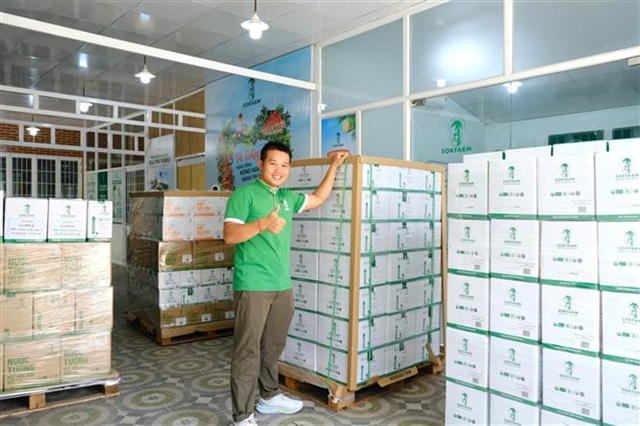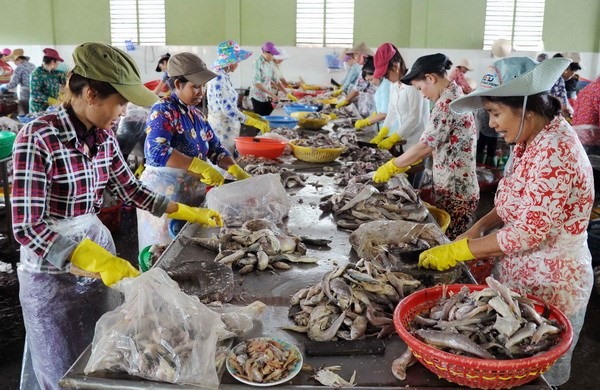 Economy
Economy

The People’s Committee of the southern Province of Trà Vinh has allocated more than VNĐ2.66 trillion (US$117.7 million) to support small and medium sized enterprises (SMEs).
 |
| Workers process seafood at an export company in Trà Vinh Province’s Trà Cú District. — VNA/VNS Photo An Hiếu |
TRÀ VINH — The People’s Committee of the southern Province of Trà Vinh has allocated more than VNĐ2.66 trillion (US$117.7 million) to support small and medium sized enterprises (SMEs).
Priority will be given to supporting SMEs where production is based on enhancing local advantages such as coconut farming, tourism, aquaculture, vegetables, handicrafts and fruit.
The province plans to use the funds to implement supportive solutions, including the creation of favourable policies and simplification of administrative procedures.
The funds will also be used to provide financial and credit support and to improve infrastructure such as facilities, workshop, transportation, electricity and water supply, along with waste treatment to protect the environment.
The province also provides technical support such as providing useful information and databases; connecting supply and demand; providing advisory services for SMEs on business establishment, development, and management; and organising dialogues with authorities at all levels.
By 2020, the province will strive to have some 4,000 SMEs, of which seven per cent are medium sized, at least 30 per cent are female-owned and 15 per cent are owned by ethnic minorities. Each year, enterprises create 22,000-25,000 new jobs.
Chairman of People’s Committee Đồng Văn Lâm said currently more than 2,000 enterprises are operating in the province with total registered capital of VNĐ25.290 trillion, creating jobs for more than 86,000 workers in and around the province.
However, of this total, small and micro enterprises account for more than 90 per cent. Therefore, most of the enterprises in the province encountered difficulties in accessing support policies, preferential loans, science and technology, and consumption markets. — VNS








.jpg)
